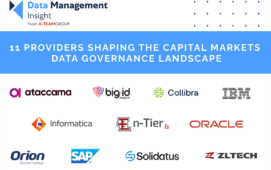The main barriers to successful risk management are poor data quality, a lack of expertise and a lack of risk culture among the broader business, according to a recent industry survey conducted by the Economist Intelligence Unit (EIU) on behalf of SAS. The survey, which was conducted during March 2009 and involved responses from 334 financial services executives, indicates that risk management reform is on the cards for the vast majority of firms.
According to the survey results, only a third of respondents thought the principles of risk management in financial services remain sound and were confident that policy makers can formulate an effective response to the current economic crisis. More than half of survey respondents indicated that they have conducted, or plan to conduct, a thorough overhaul of their risk management, including improvements to data quality and availability, strengthening risk governance, moving towards a firm-wide approach to risk, and deeper integration of risk within lines of business.
Although the crisis has eroded confidence in risk, the survey’s findings underscore the need for financial institutions to integrate performance management closely with risk governance. All departments, not just lending need a clearer picture of risk adjusted performance and the behaviours that influence it, says EIU. Each department therefore needs to ensure their strategy positively impacts results and that their actions are not unknowingly contributing to, or hiding risk concentrations, the report contends.
Virginia Garcia, senior research director at analyst firm TowerGroup, agrees that action must be taken to this end. “Although technology is not to blame for the widespread financial crisis, rigid technology and business processes have undoubtedly made it difficult for many financial services institutions to respond rapidly and effectively to the financial crisis. This situation reinforces the business case for a more agile and intelligent enterprise architecture to mitigate risk by helping financial services institutions adjust to volatile business dynamics,” she says.
Less than one third of respondents felt regulators handled the financial crisis properly but the vast majority agreed that transparency needs to be heavily emphasised within proposed regulatory reforms. They pointed to greater disclosure of off balance sheet vehicles, stronger regulation of credit rating agencies, and the central clearing for OTC derivatives as initiatives thought to be most beneficial to the financial services industry.
As well as the issue of data quality, respondents indicated that data governance continues to be a fundamental issue for risk management initiatives. Only 40% of respondents said that the importance of risk management is widely understood throughout their company, suggesting that more needs to be done to embed a strong culture of risk management in financial institutions, says EIU.
“Now more than ever, this survey confirms the need for the players in financial markets to make transparency a major part of a comprehensive overhaul of risk and performance management to make better business decisions,” contends Allan Russell, head of SAS Global Risk Practice. “The key will be investment in a risk infrastructure that supports a holistic view of risk within organisations, embedded within day to day operations and overall business strategy.”
Subscribe to our newsletter




